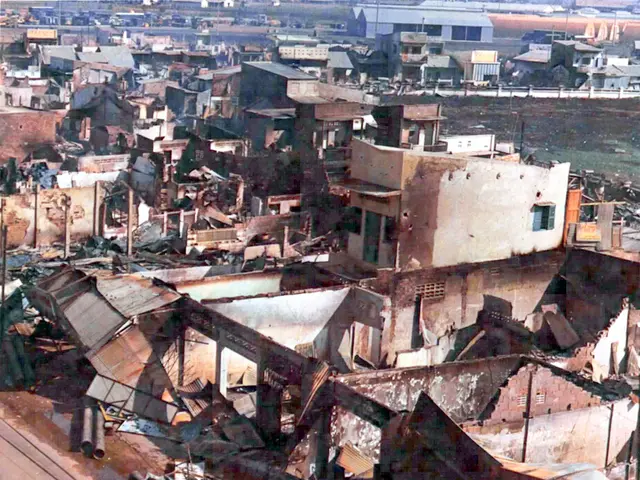United States Veterans Day: Traditions and Offers
Chilling Out and Honoring Heroes: Unraveling the Symbolism Behind Memorial Day and Veterans Day
America, the land without officially mandated vacation time, cherishes two federal holidays deeply - Memorial Day and Veterans Day. For many, these days are not just about solemn remembrance but also a much-desired extended weekend for leisure activities, shopping sprees, and barbecues.
On Memorial Day, the last Monday in May, folks flock to cemeteries, adorn graves, and attend memorial ceremonies. At Arlington National Cemetery, the somber atmosphere takes a patriotic turn as speeches, wreath-layings, and a minute of silence set the tone. But it's not just a national event - millions of individuals use this day to take a break and enjoy the weekend.
Veterans Day, celebrated on November 11th, has a richer history. Originally known as Armistice Day, it marked the 1918 armistice that ended World War I and was initially a day of peace remembrance. In 1954, as the Cold War loomed, the name was changed to Veterans Day, honoring all American veterans. Despite their differences, both holidays share a common thread - they've become part of America's national identity.
However, take a closer look, and you'll see it's not all about remembrance. These holidays inadvertently glorify war, suppress responsibility for loss, and praise military obedience. The military is presented as the moral backbone of the nation, soldiers as heroes, and the military appears to be a noble choice, regardless of a soldier's context.
Officially, these days are about honoring the dead and survivors. But in reality, they're a collective ritual that idealizes war, downplays victims, and overshadows political and military accountability. War victims, both civilian and military, are rarely mentioned, and the worldwide victims of US wars are entirely forgotten.
In America, military presence is an everyday occurrence. The phrase 'Thank you for your service' is part of social etiquette, military family members enjoy preferential treatment at airports, school honor rolls are reserved for military members, and supermarkets offer military discounts. Sporting events are often militarized for added effect, with fighter jets soaring over stadiums and military appreciation nights filled with hymns, uniforms, and field honors.
These rituals reinforce the idea that military service is a moral feat. The holidays contribute substantially to fetishizing soldiers, fallen, and wounded, transforming victims into heroes, and the injured into warriors. Questioning heroes is a taboo, and the holidays serve as a platform for state narratives that legitimize war as a necessary evil.
The shift in military remembrance began in 1973 with the abolition of conscription. Since then, recruitment has primarily been based on voluntary enlistment, but an 'economic draft' has emerged, drawing most recruits from socio-economically disadvantaged groups, particularly Black, Indigenous, and Latino communities.
For affluent classes with little contact with the military, remembrance can be abstract. But for many veterans, the reality of being cannon fodder is all too painful.
Trivia:- Memorial Day was originally known as Decoration Day, tracing its roots to the American Civil War, the deadliest conflict in US history.- Veterans Day honors all American veterans who have served in uniform, living or dead, and commemorates the 1918 armistice that ended World War I.- Memorial Day was officially declared a federal holiday in 1971 and moved from May 30 to the last Monday in May to create a long weekend.- The economic and social effects of Memorial Day include travel, sales, tourism, and community remembrance.
Finance plays a crucial role in the sacrifice and heroism of veterans during Memorial Day and Veterans Day, as many organizations and companies offer special discounts or incentives to honor their service.
In addition, education-and-self-development programs focusing on sports provide a platform for veterans to achieve success and growth after their military service, empowering them to lead fulfilling lives beyond the battlefield.





